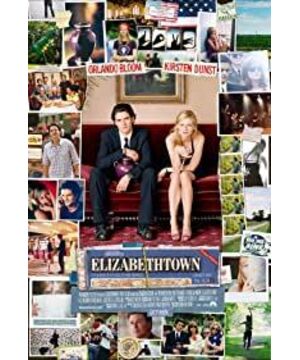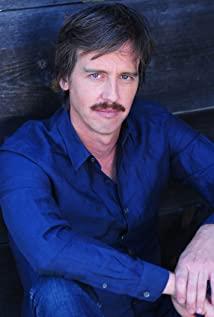==
Recently, I saw some discussions about neighboring relations on the Internet. Some people said that they have not known each other in the place where they lived for several years. A few days, upstairs and downstairs came to say hello. The implication is that I admire the neighboring relationship that is coming together now. Neighboring is a double-edged sword. When it's good, you find it convenient to help each other; when it's bad, you may lose some of your own personal space.
In Hong Kong, a neighbor who has lived with him for decades, meets the elevator every day, and he can do it just by nodding his head, never asking the other person's surname what to do. It may be that I am a liberal, and I hate all kinds of relationships and restraints; I am also a person who lacks patience and refuses to waste time and expressions on perfunctory entertainment. Therefore, I feel that the neighborhood is like Hong Kong. It is ideal to keep a nodding acquaintance. I can’t understand those who like to have close contacts between neighbors, speculating that maybe they haven’t lived outside and don’t know the benefits of keeping a little distance between neighbors.
Someone told me that this is not the case. In fact, Americans like to communicate with each other in their neighbourhoods. The indifference between neighbourhoods in metropolises is often criticized for being impersonal. I am skeptical about this. I don't think Westerners pay the most attention to personal freedom, space and privacy? Until yesterday I watched "Elizabethtown" (Elizabethtown).
"Elizabethtown" is to spare no effort to promote how thin the humanity of the commercial city is: the protagonist Rudd, as the chief designer of the footwear giant, launched a new shoe that failed miserably, costing the company a billion dollars (for To promote the theme, this cowhide is also too big, a shoe invested one billion dollars? Is it to promote it without a trial? This company deserves it if it does not lose money!), everyone opposes him, including his girlfriend. Rudd's father, Mickey, passed away, and no one took it seriously. There was not even a phone number to enter the West Point Military Academy after being recommended by the deceased. Finally, the neighbor gave the widow a hug, also to eat tofu. In Mickey's hometown of Elizabethtown, the situation is quite different. From the moment I got on the plane, I met an idiotic flight attendant who took special care of me. When I drove into the town, the door on the street was stuck with a white paper in memory of Mickey. Reminiscences, and held a large-scale memorial ceremony, although the ceremony is more like a fun party. The memorial service is opened as a fun party. I have no opinion on this. On the contrary, I think this is a very desirable place for Westerners. If you miss someone, you don't have to cry at all. Just because you don’t have to be constrained by the form, it’s not surprising that “relatives or sorrows, others have already sang”, so it seems unreasonable to portray city people indifferent to Mickey’s death from the side of the movie.
Because I disagree with the themes of this movie, although there are many interesting and relaxing scenes in the movie, and the music is good, I still gave Samsung a name. Looking at the evaluations of others, I was shocked. There are so many four-star and five-star ratings. So, I reflected again and thought about this movie carefully, but I still couldn't like that kind of human touch. Rather than saying that Elizabethtown has a strong human touch, it is better to say that the human touch is a little compulsive. According to his mother's wish, Rudd ── also the last wish of his father Mickey? Hope for cremation, but the whole town kept and insisted on burial, and took Rudd to see a piece of land reserved for Mickey. For more than ten years, Mickey and his family have been living in Oregon, but the whole town of Elizabeth recognized them In California. If you really care about Mickey and love Mickey as they say, why can't you respect Mickey? At least, listen to which state he lives in? No! They just "cared" a certain person in their own way of thinking.
In Wang Xiaobo's "Personal Dignity", there is a small article "With and without" (Although I watched George Orwell, Wang Xiaobo's status as the first idol was downgraded to second, but it still does not prevent me from mentioning him often). :
Once, my wife went to a small southern village to investigate. Because the village is not big, everyone lives under the noses of others. Anyone can count the number of people in the whole village, and the family relationship and financial situation of others are all in the eyes of others. Older people can still remember the measles of how old you were. Everyone is ignoring others, and everyone is being stigmatized. This phenomenon has formed a very thick bond, which binds all people together, weddings and funerals, without looking at other people’s winks, it is impossible for individuals to do it. Make your own decision. When she went to investigate, the locals were repairing their own graves. Everyone was repairing the graves regardless of their age or health status. The nearby hills were filled with chair graves. Because this kind of grave is very ugly, the local scenery is also very ugly, like a dysentery head. But the locals got stuck in this set and lost their aesthetics. The villagers thought she was pretty good, so they persuaded her to build one too—of course she asked her to pay some money. But she didn't repair it. A sociologist, a dignified sociologist, built a chair grave in the village one month later. This would be a big scandal. The "culture", or "norm" in this village, is somewhat specific. Generally speaking, it can be said that there is a collective "life". But when it comes to personal life, it can be said that there is no such thing. This is because every adult in the village thinks about exactly the same thing: repairing a burial mound is one of the more interesting ones. As for why they want to live like this, they can't tell.
It seems to be Elizabethtown, of course, it is the DNA variant of Elizabethtown. Wang Xiaobo went on to write: There is something called "norm", which can be translated as "norm", which refers to things that are established by convention and everyone must follow. It is different in different places, of course it has some good effects, but sometimes it is quite ugly. ...If the norm of a society is bad, like Nazi Germany or China in the early days of the "Cultural Revolution," where people lived a life in compliance with the rules, everyone knew it was not desirable.
The compulsive human touch of Elizabethtown caused Rudd to finally shake his determination to cremate his father and rush to stop it (although it was late); it also made him blurt out "We are in California..." (although it was a slip of the tongue). ). Under the influence of the collective and the environment, no matter how strong a personal will is, it will gradually yield and compromise. If norm is innocuous as in Elizabeth Town, we can still watch the movie and laugh and enjoy the warmth of the world. However, to paraphrase Zhao Xinmei's words in "Siege": "All the good things from foreign countries come to China without being out of shape." In Chinese society, I want to enjoy the "human touch" of Elizabeth Town. I am very worried about what will be out of style. That's why I watched "Elizabethtown" very badly.
================================= For
more articles, please follow my WeChat public account: shenshike-HK
View more about Elizabethtown reviews











